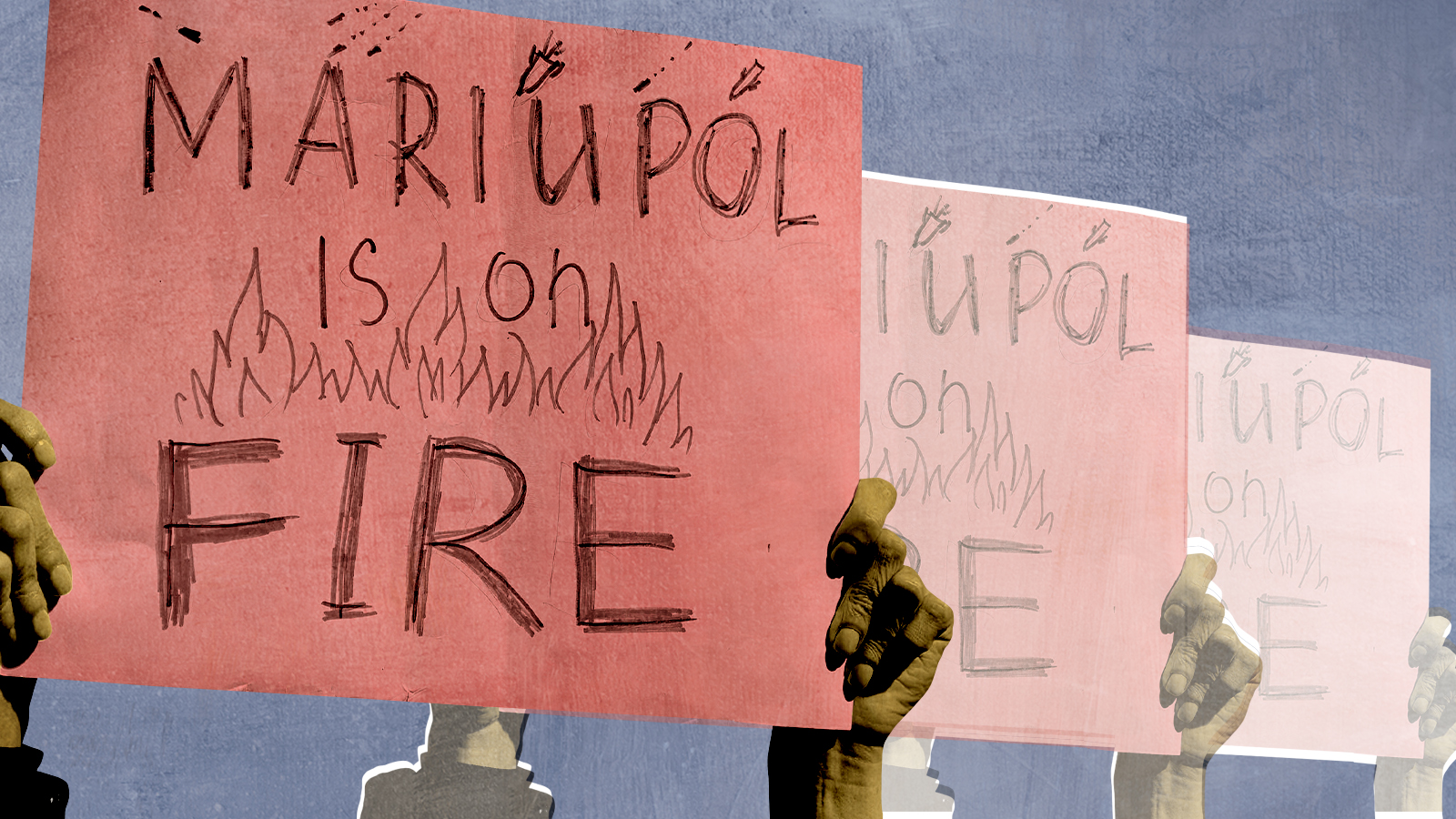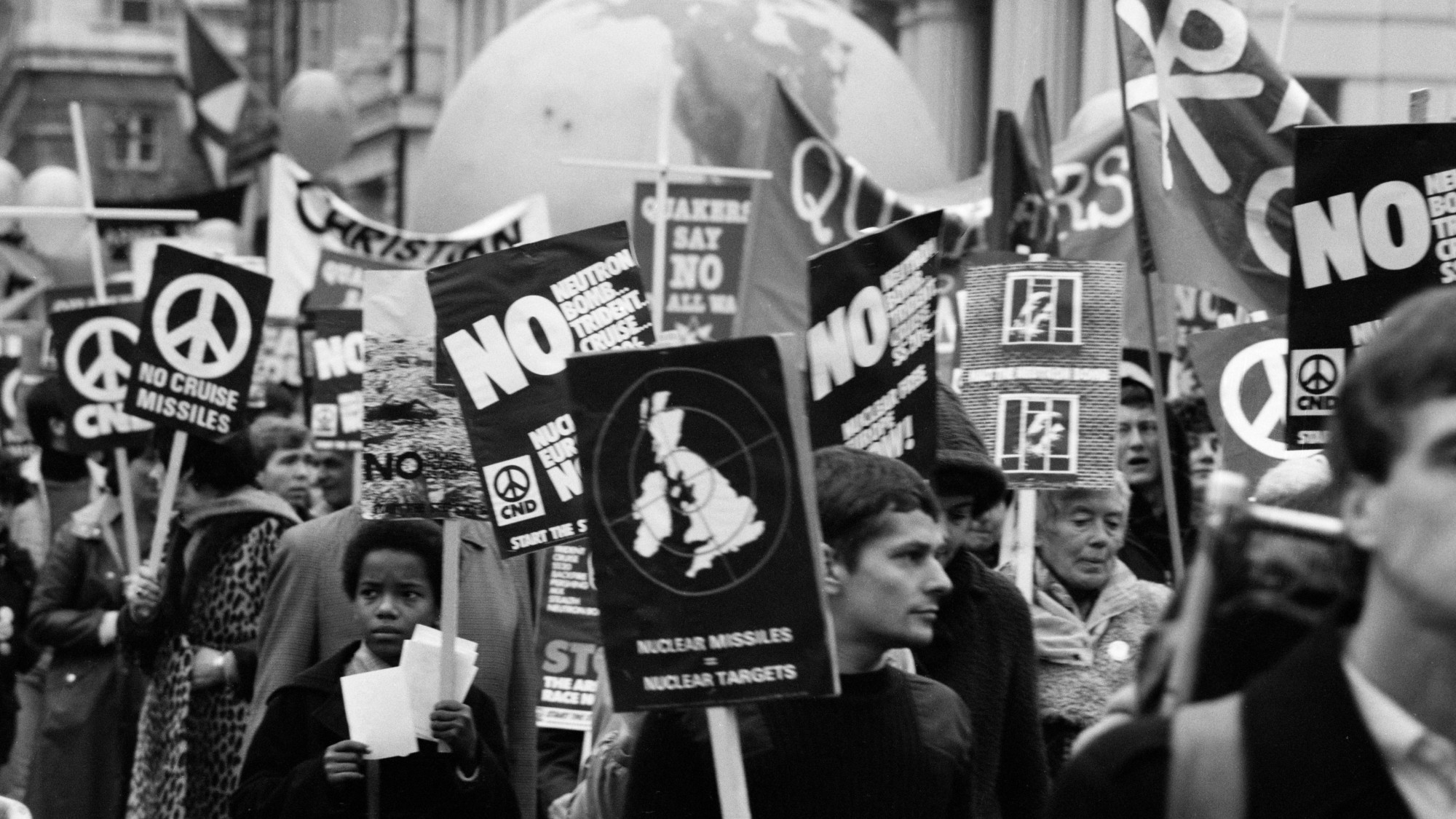Why the forecast for nuclear war is clearing — a bit


A free daily email with the biggest news stories of the day – and the best features from TheWeek.com
You are now subscribed
Your newsletter sign-up was successful
Time for your weekly nuclear winter forecast: The likelihood of fallout has lessened somewhat, with chances of a full-scale nuclear war looking slim. While forecasting the end of the world is a tricky business (as witnessed by countless millenarian groups down through the ages), there's reason to believe Russia and the Western world are a little bit farther from Armageddon than they were a month ago.
In early March, Russian President Vladimir Putin's plan to take control of all Ukraine wasn't looking good, but the Kremlin wasn't willing to declare defeat. The world feared a frustrated Russia might decide to turn from its vaunted and vanquished heavily armored assaults to the shortcut of strategic nuclear weapons. Could a single "surgical" nuclear strike lead to a strategic global thermal nuclear war? We don't know, and it's probably better not to find out.
But as Russia's full-out assault on Kyiv and other cities in the center and west of Ukraine stalled, then retreated, there have been no signs Russia is planning to bring in strategic nukes. Instead, Russia is now looking toward the east of Ukraine, where it already controls some territory and is thought to have a miliary advantage in open terrain friendly to tanks. Smaller ambitions and better battlefield conditions point to a lesser chance of bringing out the nukes.
The Week
Escape your echo chamber. Get the facts behind the news, plus analysis from multiple perspectives.

Sign up for The Week's Free Newsletters
From our morning news briefing to a weekly Good News Newsletter, get the best of The Week delivered directly to your inbox.
From our morning news briefing to a weekly Good News Newsletter, get the best of The Week delivered directly to your inbox.
Meanwhile, in the West, two things are happening. One is the dying cry in the media and by experts for a NATO-enforced no-fly zone in Ukraine. There's no doubt the Ukrainians still want one, but for now, they've refocused on asking for weapons they can use themselves. And while there's talk that weapons rolling across the border will become ever more substantial, that's not the same thing as having NATO jets patrolling Ukrainian skies, looking for Russian targets.
The second development the NATO side is the reaction to Russian atrocities carried out on civilians in towns like Bucha. Despite press attention and perhaps the triggering of a few more sanctions, the West has shown it won't go to war over war crimes, or even "genocide." There will be many more such atrocities if Russia's past is any prologue, but the decision has clearly been made as to the Western response.
None of this is particularly cheering, and, as with any forecast, it's just a best guess based on the information available. But for now, chances of a world-ending war have declined. Everyone take a deep breath and let it out slowly.
A free daily email with the biggest news stories of the day – and the best features from TheWeek.com
Jason Fields is a writer, editor, podcaster, and photographer who has worked at Reuters, The New York Times, The Associated Press, and The Washington Post. He hosts the Angry Planet podcast and is the author of the historical mystery "Death in Twilight."
-
 How the FCC’s ‘equal time’ rule works
How the FCC’s ‘equal time’ rule worksIn the Spotlight The law is at the heart of the Colbert-CBS conflict
-
 What is the endgame in the DHS shutdown?
What is the endgame in the DHS shutdown?Today’s Big Question Democrats want to rein in ICE’s immigration crackdown
-
 ‘Poor time management isn’t just an inconvenience’
‘Poor time management isn’t just an inconvenience’Instant Opinion Opinion, comment and editorials of the day
-
 What is ‘Arctic Sentry’ and will it deter Russia and China?
What is ‘Arctic Sentry’ and will it deter Russia and China?Today’s Big Question Nato considers joint operation and intelligence sharing in Arctic region, in face of Trump’s threats to seize Greenland for ‘protection’
-
 New START: the final US-Russia nuclear treaty about to expire
New START: the final US-Russia nuclear treaty about to expireThe Explainer The last agreement between Washington and Moscow expires within weeks
-
 What would a UK deployment to Ukraine look like?
What would a UK deployment to Ukraine look like?Today's Big Question Security agreement commits British and French forces in event of ceasefire
-
 The history of US nuclear weapons on UK soil
The history of US nuclear weapons on UK soilThe Explainer Arrangement has led to protests and dangerous mishaps
-
 Did Trump just end the US-Europe alliance?
Did Trump just end the US-Europe alliance?Today's Big Question New US national security policy drops ‘grenade’ on Europe and should serve as ‘the mother of all wake-up calls’
-
 Is conscription the answer to Europe’s security woes?
Is conscription the answer to Europe’s security woes?Today's Big Question How best to boost troop numbers to deal with Russian threat is ‘prompting fierce and soul-searching debates’
-
 Trump peace deal: an offer Zelenskyy can’t refuse?
Trump peace deal: an offer Zelenskyy can’t refuse?Today’s Big Question ‘Unpalatable’ US plan may strengthen embattled Ukrainian president at home
-
 Vladimir Putin’s ‘nuclear tsunami’ missile
Vladimir Putin’s ‘nuclear tsunami’ missileThe Explainer Russian president has boasted that there is no way to intercept the new weapon
